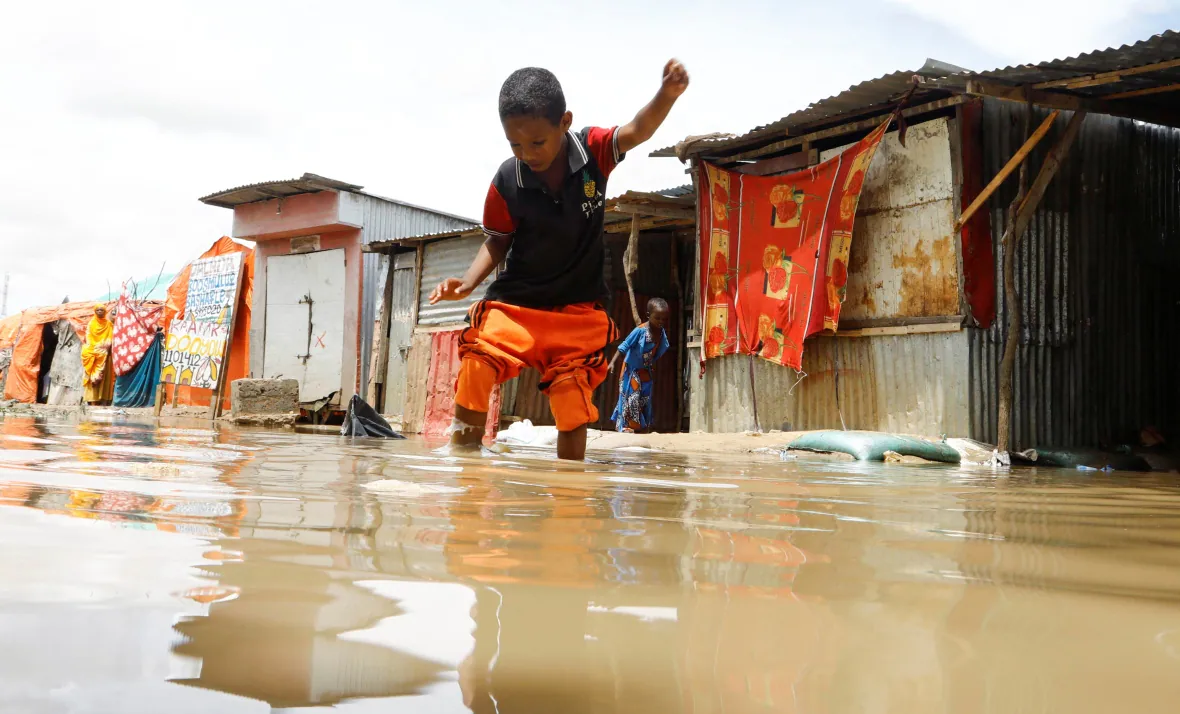Scientists warn of ‘dangerous future’ if global emissions aren’t cut

A recently published report in The Lancet emphasizes that climate change is increasingly affecting the well-being and survival of people globally. Scientists caution that without prompt action, the risks associated with climate change will escalate rapidly. The report, released on Tuesday in the esteemed medical journal, predicts a surge in heat-related fatalities and food insecurity by the middle of the century, particularly in developing regions.
Marina Romanello, the executive director of the Lancet Countdown at University College London, highlighted the current impact of climate change on lives and livelihoods worldwide, emphasizing that these effects are already evident. In a pre-release briefing, she warned that the present consequences might just be early indications of a perilous future unless urgent measures are taken to address climate change.
The annual Lancet Countdown report, spearheaded by University College London in collaboration with over 100 experts from 52 research institutions, provides a comprehensive assessment of the health implications of climate change.
Poorer countries harder hit
This year’s report, for the first time, utilized scientific data to quantify the potential consequences in a warming world. New projections highlight the escalating risks to population health if the goal of limiting warming to 1.5 degrees Celsius above pre-industrial levels is not achieved. The researchers anticipate that every health hazard they monitored will worsen if temperatures increase by two degrees by the end of the century.
Under this scenario, annual heat-related deaths are expected to surge by 370 percent by mid-century, and heat exposure is predicted to cause a 50 percent increase in globally lost labor hours. The outlook is characterized by a lack of stability and recovery time, with little opportunity to improve the circumstances and livelihoods of the populations being served, as noted by Abigael Lukhwaro, the advocacy manager for Doctors Without Borders in Somalia.
The heightened frequency of heatwaves could result in approximately 525 million more people facing food insecurity between 2041-2060, exacerbating the global risk of malnutrition. Georgiana Gordon-Strachan, an epidemiology professor at the University of the West Indies and director of the Lancet Countdown’s regional center for small island developing states, pointed out that individuals in poorer countries, often least responsible for greenhouse gas emissions, bear the brunt of the health impacts.
Anticipated discussions at the upcoming United Nations climate talks, COP28, in Dubai from November 30 to December 12, are expected to prominently feature funding to assist developing countries in adapting to climate change and dealing with extreme weather events such as floods, heatwaves, and storms.
Climate-driven drought in Horn of Africa
Already, more frequent heat waves and droughts were responsible for 127 million more people experiencing moderate to severe food insecurity in 122 countries in 2021, compared to annually between 1981 and 2010.
One of the most severe cases of drought has been unfolding in the Horn of Africa, where there have been extended dry periods punctuated by periods of short intense rainfall since 2020.
Climate scientists calculated earlier this year that droughts like the one in the region have become roughly 100 times more likely because of human-induced climate change, driven primarily by the burning of fossil fuels.
More recently, floods — by some estimates the worst in decades — have driven close to half a million people in Somalia from their homes.
The United Nations World Food Program warned Tuesday the floods, in the wake of the drought, will push the country to the brink of famine.
Abigael Lukhwaro, an advocacy manager for Doctors Without Borders in Somalia, said the situation in the country has become increasingly dire.
“You are coming from a very dry spell — then the next thing you are in this situation where there is a lot of flooding, flash floods and a lot of rain,” Lukhwaro said in an interview.
“There is no stability. There is no time to recover. There is no time to improve the situation and the livelihoods of the populations that we serve.”
Lukhwaro said countries like Somalia will need help to be better prepared, and compensated, for what she described as “climate shocks” in the years to come.

